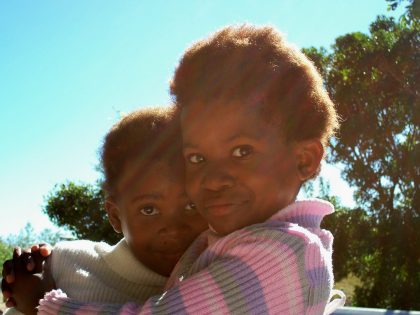
WhatsApp and anti-capitalism: should you stay or should you go?
Facebook and its “family” of services are a one-way street towards greater integration, data exploitation, and erosions of privacy by an increasingly monopolistic company.
6357 Article(s) by:
Fatima B. Derby is a Ghanaian feminist writer and queer activist.

Facebook and its “family” of services are a one-way street towards greater integration, data exploitation, and erosions of privacy by an increasingly monopolistic company.

Anyone who lives in fear of getting sick exists in a state of unfreedom.

Today’s social movements rely on tech collectives to organize safely. But few know the history of other technologies used by earlier liberation movements.

Why is Nairobi’s government terrorizing hawkers and hustlers around the city? An anthropological perspective.

Has the recent death of Tanzania’s president John Magufuli created new political possibilities?

AIAC Talk this week: the historical entanglement of South African football with English football, and what that tells us about politics and sport. Watch it on our YouTube channel.

In this interview with Rasna Warah, journalist Michela Wrong debunks the myth of Rwanda as a model developmental state and a poster child for Western aid.

African states are involved in the War on Terror more than we think. They’re surrounded by an eco-system of the war industry.

An encounter on a Cape Town bus forces the writer to think about religion, especially Christianity, and queerness.

An interview with Brian Peterson, author of a new biography of Thomas Sankara. Peterson positions 1980s Burkina Faso as counterhegemonic to the neoliberal transition then.

In the first video from a series for the Capitalism In My City project, Brian Mathenge decodes what everyday capitalism looks like from the margins of Nairobi.

Why are South African government policies benefiting black mothers still controversial?

The film “Finding Sally” grapples with Ethiopia’s past, but may romanticize its present.

How is Kenya’s “new middle class” contributing to a pervasive low-quality oppression that leaves Kenyans feeling hopeless?

This week on AIAC Talk, we’re debating whether the moment is right for South Africa’s left to form a new party. Watch it live on YouTube.

Assuming today’s socioeconomic crisis benefits the Left is folly. That will only happen if we have the political vision to make class the fault line of social polarization, and for that we need to face the challenge of constructing a new party.

The death of the Zulu king highlights the unresolved issues that continue to shapes lives in the KwaZulu-Natal province of South Africa.

Many of Nairobi’s apocalypse merchants and prophesy peddlers have disappeared in the past year. Reflections on how COVID-19 has re-shaped the city and residents’ lives.

African “refugeeness” in the media, policy, and academia is an essentialist physical image conflating material deprivation and multiple victimhoods.

What kinds of radical emancipatory futures are being imagined in Africa’s speculative fictions?